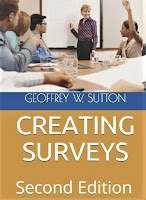Measures of Forgiveness and Restoration
Scale names: Leadership Restoration Scales
Leadership Restoration Scale: Forgive and Restore (LRSF)
Leadership Restoration Scale: Restoration
(LRSR)
Two short scales measure two dimensions of congregants
views on restoring a religious leader to ministry. One scale includes
forgiveness (LRSF) and a second scale focuses exclusively on degrees of restoration
without mentioning forgiveness (LRSR).
Author(s)
Sutton and Jordan (2013).
Items
The LRSF is a 3-item scale of forgiveness and restoration
The LRSR is a 6-item scale of restoration
Response Type
A 7-point rating scale with anchors 1 = Very Strongly
Agree and 7 = Very Strongly Disagree. See example below.
Sample items
The full scales can be found in Sutton and Jordan
(2013) or can be downloaded here- see availability below.
LRSF Scale
2. The victim or
victims offended by the person need to forgive the person before the person can
be restored to any public ministry position.
|
Strongly Agree |
Mostly Agree |
Somewhat Agree |
Somewhat Disagree |
Strongly Disagree |
Very Strongly Disagree |
|
|
7 |
6 |
5 |
4 |
3 |
2 |
1 |
LRSR Scale
3. It is unlikely
that this person could return to the same or similar public ministry position.
|
Very Strongly Agree |
Strongly Agree |
Mostly Agree |
Somewhat Agree |
Somewhat Disagree |
Strongly Disagree |
Very Strongly Disagree |
|
7 |
6 |
5 |
4 |
3 |
2 |
1 |
Descriptive Statistics
These data are based on a sample of 169 people who
reported knowing a member of the clergy who committed an offense (Sutton &
Jordan, 2013). Skew and kurtosis were within normal limits for both measures.
LRSF M = 9.85, SD = 4.79
LRSR M = 17.96, SD = 6.61
Validity
The two LRS scales measure different responses to restoring
a leader. Although they are not significantly related to each other (r =
.40) they are differently related to other measures of forgiveness and
spirituality. A statistically significant relationship was defined as p <
.05.
LRSF was significantly positively correlated with TRIM-A
(Transgression Related Interpersonal Motivations- Avoidance; McCullough
et al., 1998)
LRSF was significantly negatively correlated with the
following scales
CSRI 1 (Clergy Situational Restoration Inventory)
IER-EP (Intrinsic-Extrinsic Religiosity Scale
Revised-Extrinsic Personal Subscale; Gorsuch & McPherson, 1989)
LRSR (Leadership Restoration Scale-Restore) was
significantly positively
correlated with the following scales
TRIM-A (Transgression Related InterpersonalMotivations- Avoidance; McCullough et al., 1998)
CRSI Level I offenses: Clergy Situational
Restoration Inventory
CRSI Level 2 offenses: Clergy Situational
Restoration Inventory
LRSR (Leadership Restoration Scale-Restore) was significantly negatively correlated with the SCBCS (Santa Clara Brief Compassion Scale, Hwang et al., 2008)
Availability
See Appendix B of Sutton and Jordan (2013) or
Click Here
to Download Scales
The scales may be used in research and teaching at no charge. Please cite Sutton & Jordan (2013).
For use in books or any commercial use, contact Geoffrey W. Sutton PhD at suttong@evangel.edu
Berry, J. W., Worthington, E. R., O'Connor,
L. E., Parrott, L., & Wade, N. G. (2005). Forgivingness, vengeful
rumination, and affective traits. Journal of Personality, 73,
183–225. doi:10.1111/j.14676494.2004.00308.x.
Gorsuch, R. L., & McPherson, S. E.
(1989). Intrinsic/extrinsic measurement: I/E-Revised and single item scales. Journal
for the Scientific Study of Religion, 28, 348–354. doi:10.2307/1386745.
Hwang, J., Plante, T., & Lackey, K.
(2008). The development of the Santa Clara Brief Compassion Scale: an
abbreviation of Sprecher and Fehr's compassionate love scale. Pastoral
Psychology, 56, 421–428. doi:10.1007/s11089-008-0117-2.
McCullough, M. E., Rachal, K., Sandage, S.
J., Worthington, E., Brown, S., & Hight, T. L. (1998). Interpersonal
forgiving in close relationships: II. Theoretical elaboration and measurement. Journal
of Personality and Social Psychology, 75, 1586–1603.
doi:10.1037/0022-3514.75.6.1586.
Sutton, G. W. (2016). A House Divided: Sexuality, morality, and Christian cultures.
Eugene, OR: Pickwick. ISBN: 9781498224888 AMAZON
Sutton, G. W., McLeland, K. C., Weaks, K. Cogswell, P. E., & Miphouvieng, R. N. (2007). Does gender matter? An exploration of gender, spirituality, forgiveness and restoration following pastor transgressions. Pastoral Psychology. 55, 645-663. doi 10.1007/ s11089-007-0072-3 ResearchGate Link Academia Link
Sutton, G.W., & Thomas, E. K. (2005).
Can derailed pastors be restored? Effects of offense and age on restoration. Pastoral Psychology, 53, 583-599. Academia Link Research Gate Link
Thomas, E. K., White, K., & Sutton, G.W.
(2008). Religious leadership failure: Apology, responsibility-taking, gender,
forgiveness, and restoration. Journal
of Psychology and Christianity, 27, 16-29. Academia Link Research Gate Link
Creating Surveys on AMAZON or GOOGLE
 |
Reference for clinicians on understanding assessment
Applied Statistics Concepts for Counselors on AMAZON or GOOGLE
Resource Link: A – Z Test Index
Checkout My Website www.suttong.com
See my Books
FOLLOW me on
FACEBOOK Geoff
W. Sutton
TWITTER @Geoff.W.Sutton
PINTEREST www.pinterest.com/GeoffWSutton
Read published articles:
Academia Geoff
W Sutton
ResearchGate Geoffrey W Sutton
Photo note: Bing images- Free to share and use


Comments
Post a Comment